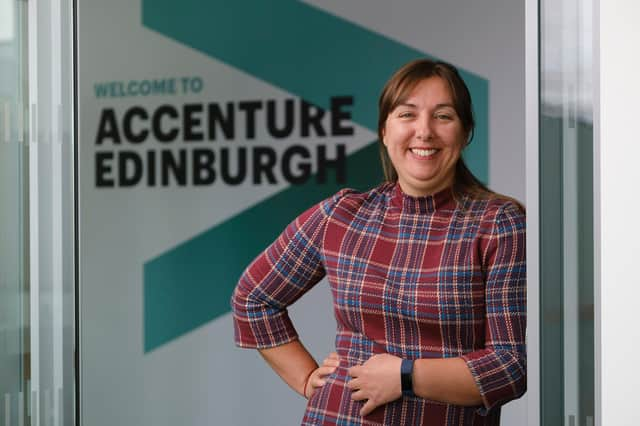Metaverse shows the shape of things to come - Michelle Hawkins


According to global research by Accenture, 71 per cent of executives think the metaverse will have a positive impact on their organisations, while 42 per cent believe it will be breakthrough or transformational for their business.
Indeed, a lot of early metaverses are already being built. A myriad of organisations, each working with different platforms, partners, and technologies, are showing what thinking differently can achieve in terms of business growth and customer engagement. Decentraland, a user-owned virtual world, for instance, saw 21,000 real estate transactions worth $110 million in the past 12 months, while a live concert held inside the videogame Fortnite attracted 27.7 million unique attendees, eclipsing what any typical venue can accommodate.
Advertisement
Hide AdAdvertisement
Hide AdThe range of business areas harnessing the metaverse will only grow, with the spectrum of ideas expected to coalesce into a more broadly unified experience. Just as the internet evolved beyond simple websites to underpin most businesses today, it would be wrong to think the experience of the metaverse will be constrained to digital space. That’s why, according to Accenture’s Technology Vision for 2022, it makes more sense to think about a “Metaverse Continuum”.
In practice this means the rapid development of an evolving and expanding digital landscape, ranging from digital interactions in the physical world, to completely immersive virtual worlds, to a blend of virtual reality and the physical. In this “continuum”, multiple technologies, including extended reality, blockchain, artificial intelligence (AI), digital twins, and smart objects – like cars and factories – will operate side-by-side, opening-up new possibilities for businesses.
The pandemic, and how companies responded to it, has accelerated this trend, shaping the foundations for the new worlds taking shape. Business leaders are now taking a more deliberate approach to planning what comes next, and we’ve identified four ways in which they should think and plan.
Firstly, metaverse and Web3 innovations are transforming the fundamental underpinnings and operation of the virtual world. Instead of viewing the internet as a disparate collection of sites and apps, metaverse efforts envision a persistent 3D environment, with its own sense of place, where moving from work to a social platform is as simple as crossing the street.
But as the report recognises, the value of new virtual worlds would be limited if advances in enabling technologies like 5G, ambient computing, augmented reality and smart materials weren’t also improving how users can physically interact with the metaverse. We call this the ‘Programmable World’, exploring how technology is becoming an increasingly integral part of the fabric of our environment, unlocking better ways to design and personalise experiences.
When it comes to populating new worlds, humans are the primary residents. But we’re also tracking the emergence of ‘The Unreal’. Thanks to advancements in AI, our environments and businesses are increasingly filled with machines that are passably human.
At the same time however, people are coming face-to-face with bad actors using this technology – from deepfakes to bots and more – igniting a growing concern that may become the biggest hurdle for organisations looking to grow their use of AI. This creates the opportunity and obligation now to build a responsible metaverse — addressing issues like trust, sustainability, personal safety, privacy, responsible access and use, and diversity. The actions and choices organisations make today will set the stage for the future.
Finally, we’re becoming increasingly capable of resetting the boundaries of traditional industries and pushing the outer limit of what we call “Computing the Impossible”, as a new class of machines emerges. These machines—including but not limited to quantum – can help industries overcome previously intractable problems. For instance, our financial services sector assumes that predicting the stock market and accurately modelling risk is very hard to do. What if it weren’t?
Advertisement
Hide AdAdvertisement
Hide AdThe good news for organisations in Scotland is that there is still time to get in front of these challenges. The building blocks of the Metaverse Continuum are taking shape today, from digital-only music concerts to advertising campaigns in virtual reality. Yet, to have a decisive influence on these new environments, rather than being forced to operate with models that others have defined for us, it is business critical to act now.
Michelle Hawkins, Managing Director for Scotland, Accenture
Comments
Want to join the conversation? Please or to comment on this article.